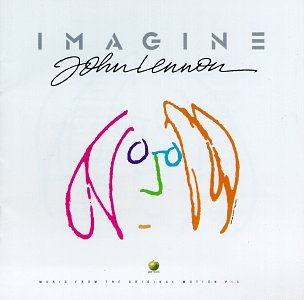I assigned a couple dozen passages from the Analects to my students, inviting them to choose nine of them to respond to "in whatever creative way you choose." I’ve enjoyed reading those responses, overall. So many interesting connections: Confucius and Freud, Confucius and Obama, Confucius and Rabinadrath Tagore, on and on.
Maybe it’s them – and student Kelsey particularly, because she mentioned liking the Beatles in her Analects webcam discussion – that led me to my own new connection today. It’s this: John Lennon’s classic song, “Imagine,” pretty much describes ancient Confucian and Taoist wisdom:
Verse 1:
Imagine there's no Heaven
It's easy if you try
No hell below us
Above us only sky
Imagine all the people
Living for today
This is ancient Chinese through and through: nature is nothing to fear, and neither is death. But since death seems like it might be final (in a natural, “that’s the way the Yang Yins” sort of way), today certainly is something to cherish. The ancestors wish they were still here, after all – that’s why we offer them the earthly things we love – food, flowers, incense, family love and respect. To me it’s obvious: in China, earth is heaven. And it doesn’t last forever, which only adds beauty in a bittersweet way.
Verse 2:



